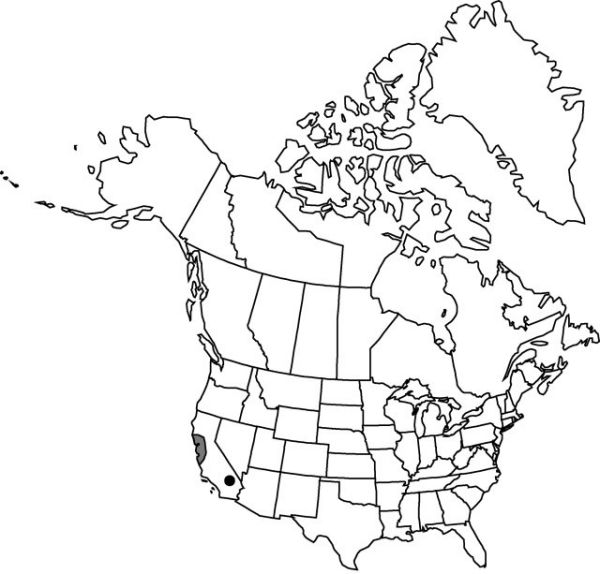Difference between revisions of "Iris longipetala"
in W. J. Hooker and G. A. W. Arnott, Bot. Beechey Voy., 395. 1840.
FNA>Volume Importer |
imported>Volume Importer |
||
| (6 intermediate revisions by 2 users not shown) | |||
| Line 1: | Line 1: | ||
{{Treatment/ID | {{Treatment/ID | ||
|accepted_name=Iris longipetala | |accepted_name=Iris longipetala | ||
| − | |accepted_authority=Herbert | + | |accepted_authority=Herbert |
|publications={{Treatment/Publication | |publications={{Treatment/Publication | ||
|title=in W. J. Hooker and G. A. W. Arnott, Bot. Beechey Voy., | |title=in W. J. Hooker and G. A. W. Arnott, Bot. Beechey Voy., | ||
| Line 8: | Line 8: | ||
}} | }} | ||
|common_names=Long-petaled iris | |common_names=Long-petaled iris | ||
| + | |special_status={{Treatment/ID/Special_status | ||
| + | |code=E | ||
| + | |label=Endemic | ||
| + | }} | ||
|basionyms= | |basionyms= | ||
|synonyms= | |synonyms= | ||
| Line 23: | Line 27: | ||
|habitat=Wet, heavy soil along coast | |habitat=Wet, heavy soil along coast | ||
|distribution=Calif. | |distribution=Calif. | ||
| − | |discussion=<p>Iris longipetala hybridizes with I. missouriensis and is found from Mendocino County south to Monterey.</p> | + | |discussion=<p><i>Iris longipetala</i> hybridizes with <i>I. missouriensis</i> and is found from Mendocino County south to Monterey.</p> |
|tables= | |tables= | ||
|references= | |references= | ||
| Line 32: | Line 36: | ||
-->{{#Taxon: | -->{{#Taxon: | ||
name=Iris longipetala | name=Iris longipetala | ||
| − | + | |authority=Herbert | |
| − | |authority=Herbert | ||
|rank=species | |rank=species | ||
|parent rank=series | |parent rank=series | ||
| Line 45: | Line 48: | ||
|publication title=in W. J. Hooker and G. A. W. Arnott, Bot. Beechey Voy., | |publication title=in W. J. Hooker and G. A. W. Arnott, Bot. Beechey Voy., | ||
|publication year=1840 | |publication year=1840 | ||
| − | |special status= | + | |special status=Endemic |
| − | |source xml=https:// | + | |source xml=https://bitbucket.org/aafc-mbb/fna-data-curation/src/2e0870ddd59836b60bcf96646a41e87ea5a5943a/coarse_grained_fna_xml/V26/V26_796.xml |
|genus=Iris | |genus=Iris | ||
|subgenus=Iris subg. Limniris | |subgenus=Iris subg. Limniris | ||
Latest revision as of 22:17, 5 November 2020
Rhizomes with short, creeping branches, stout, 2–2.5 cm diam., covered with bases of old leaves; roots numerous, fleshy. Stems simple or 1–2-branched, solid, 3–6 dm. Leaves: basal persistent, blade dark green, turning gray or yellow-brown when drying, veins not prominent, linear, 4–7 dm × 0.6–1 cm, usually longer than stem, glaucous or subglaucous, apex acute; cauline 2–3, reduced. Inflorescence units 3–6-flowered; spathes distant, inner sometimes 10 cm distal to outer, green, narrowly linear-lanceolate, 8–15 cm × 20–40 mm, herbaceous, margins and apex scarious. Flowers: perianth pale blue-violet or nearly white, with lilac-purple veins; floral tube funnelform, 0.5–1.3 cm; sepals spreading, then drooping at apex, white, flecked and veined with violet, obovate, 8–10 × 3–5 cm, base attenuate into narrow claw with prominent yellow ridge, signal a yellowish basal patch; petals semierect, oblong, 8–9 × 1.5–2 cm, base gradually attenuate, apex emarginate, bluntly rounded; ovary trigonal with central ridge in each face, 2–5 cm; style narrow basally, widening distally, 3.5–4 × 0.6–1 cm, crests overlapping basally, subquadrate, 1–1.5 cm, margins incised; stigmas obscurely to prominently 2-lobed, margins crenate; pedicels stout, 3–9 cm, unequal at anthesis, becoming ± equal at maturity. Capsules 6-ribbed, oblong-ovoid, tapering to either end, almost round in cross section, 8–9 cm. Seeds dark brown, globular, wrinkled. 2n = 86, 88.
Phenology: Flowering Mar–Apr.
Habitat: Wet, heavy soil along coast
Discussion
Iris longipetala hybridizes with I. missouriensis and is found from Mendocino County south to Monterey.
Selected References
None.
